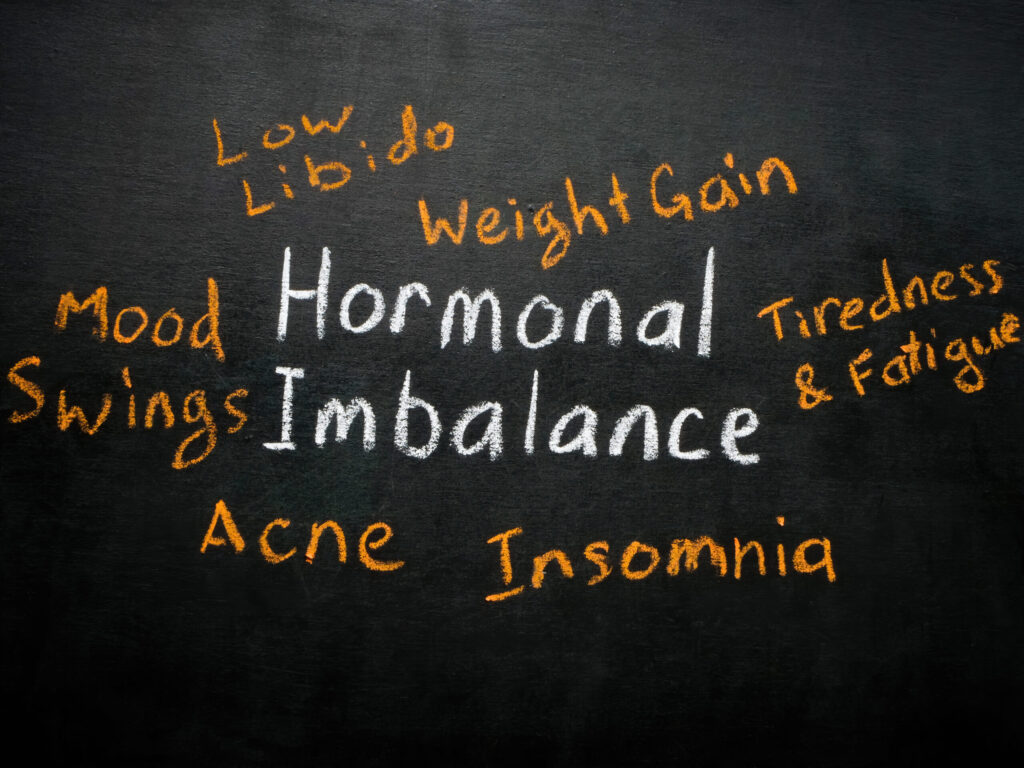Building a strong immune system is essential to lasting health and helping your body be more resilient against anything it may come into contact within the environment.
Having a strong immune system requires a multi-faceted approach built on strong pillars of holistic health.
The 6 Essential Pillars to Build a Strong Immune System
- Gut Health and Microbiome
- Balanced Hormones
- Quality Sleep
- Stress Management
- Exercise
- Supplementation
Gut Health and Microbiome
Gut Health and the microbiome go hand in hand. Gut health is also one of the biggest influencers of your overall health since up to 70% of your immune function is controlled by the gut. There has been a great deal of research which shows that the gut is so influential over your body, that it’s considered your second brain.
It may be confusing as to what the “gut” actually is, and where it’s located in your body. The gut is part of your digestive system; digestion actually starts the moment you eat or drink. Food goes into your stomach which helps to break down food so that once it reaches the small intestine, nutrients can be absorbed into the bloodstream. The large intestine is also part of the digestive system and is mostly responsible for eliminating waste.
Your gut has many roles. It produces vitamins and nutrients, neurotransmitters, etc., which are in constant communication with other systems in the body and brain. It’s also responsible for:
- Digestion of food
- Communication with the immune and endocrine systems
- Nutrient absorption
- Protection against pathogen overgrowth
- Regulation of intestinal mucosal barriers
There is a gut “microbiome” which is a pocket located at the junction of the small and large intestine, and this is where the action takes place. This pocket is called the cecum and is the collective of trillions of bacteria, viruses, fungi, amino acids, and proteins, all of which contain genes.
When you’re born, your microbiome is undeveloped and consists of genes that have been inherited from your mother’s gut microbiome. This is why babies are so susceptible to bacterial and viral infections; their immune systems are very weak because of the lack of flora and resistance in their guts.
It’s not possible to control the genes that you are born with, but it is possible to alter the genetic markers in the gut based on diet and lifestyle. A thriving ecosystem is one that is diverse and balanced. Think of your gut as its own ecosystem living in your body; the more diverse and balanced that it is, the stronger your immune system will be and you will experience greater overall health.
The flora in the biome are varied and some are good (healthy) and some are bad (unhealthy). The key is doing what you can to keep the good flora thriving which will keep your immune system strong.
Things That can Negatively Affect the Microbiome Include:
- A diet high in sugar or processed foods, and unhealthy fats
- Antibiotic overuse
- Chronic NSAID use such as Advil and Motrin, which will damage the intestinal lining.
- Inflammatory foods such as gluten
- Birth control pills
- High stress levels – the gut and brain communicate with each other through the vagal nerve. When the body or mind is stressed, more cortisol (the fight/flight hormone) is released which can cause the digestive system to shut down.
- Unbalanced or deficient hormone levels
- Illness or trauma
- Obesity
- Sleep deprivation
When your gut is in a state of dysbiosis, or imbalance, it makes you more susceptible to acute infections and chronic diseases. The healthier the flora, the more protection you will have from the outside environment. When the gut is unhealthy, it can cause problems with nutrient absorption, hormonal imbalances, and can also cause the permeable barrier that lines the intestinal wall to become compromised which leads to Leaky Gut Syndrome.
If the gut wall is compromised, minute spaces called “tight junctions” loosen and allow toxins, partially undigested food particles, and other harmful bacteria and viruses to cross over and enter the bloodstream. Leaky Gut, or Increased Intestinal Permeability, can trigger the immune system to overreact in defense against what the body considers to be foreign invaders. An overactive immune system also causes inflammation throughout the entire body, and when the immune system is forced into overdrive, “attacks” can be waged against healthy organs and/or glands.
Symptoms of an overactive immune system present themselves by autoimmune diseases such as:
- Hashimoto’s Disease
- Irritable Bowel Syndrome
- Type 1 Diabetes
- Inflammatory Bowel Disease
- Rheumatoid Arthritis
- Psoriasis
- Crohn’s Disease
- Celiac Disease
- Lupus
- Chronic Fatigue Syndrome
- Fibromyalgia
Studies also show that gut dysbiosis creates more of a risk factor for inflammatory responses that can lead to heart disease and even some cancers.
Often, one of the first clues that your body will give you if your gut is not functioning optimally is that you will develop digestive issues. Additionally, you will feel “run down” or fatigued, and your hormones will become imbalanced. You may also develop food sensitivities which can trigger varying symptoms in other parts of the body. Your mood may change, and memory and cognition may feel more impaired.
Fortunately, balance can be restored to the gut and microbiome. Once the root cause problems are identified, they can be addressed by your provider so that you can strengthen your immune system and achieve better health.
Hormonal Imbalances

Both women and men experience hormonal changes throughout their lives. These can occur as a result of poor diet, life changes, stress, sleep disturbances, medications, and age. PMS, estrogen dominance, PCOS, pregnancy, perimenopause/menopause, and andropause all can cause hormonal imbalances as well.
Hormone imbalances don’t just occur with the sex hormones. If your thyroid gland is under producing, you can experience many unpleasant symptoms and side-effects. Adrenal hormones can become out of whack especially when you are faced with ongoing or acute stressors to both the mind and body. Insulin resistance is another common hormonal imbalance which can wreak havoc on the body.
It’s important to understand that the body’s hormones act as a symphony playing together in the entire endocrine system. If hormonal imbalances are occurring within one area, then chances are that all of your hormonal levels can become affected.
Hormonal imbalances can lead to a weakened immune system. Research has shown that deficiencies in the sex hormones can compromise immunity. According to the National Institute of Health, “Decades of research have provided strong evidence for a reciprocal relationship between the immune system and hormones of the hypothalamus-pituitary-thyroid (HPT) axis. Thyroid stimulating hormone (TSH) in particular, has been shown to have a variety of immune-regulating activities.”
Symptoms of Hormonal Imbalances Include:
- Fatigue
- Osteoporosis
- Loss of muscle mass/increased fat
- Irregular periods/infertility
- Hot flashes and night sweats
- Headaches
- Anxiety and Depression
- Dry skin
- Constipation
- Hair loss
- Irritability
- Muscle and/or joint pain
- Painful sex
- Vaginal dryness
- Erectile dysfunction
- High cholesterol levels
- Insulin resistance
- Decreased ability to handle stress
- Brain fog/cognitive dysfunction
- Loss of vitality
- Decreased motivation
The proper way to address hormonal imbalances is through an integrative, personalized, comprehensive, and regular monitored program which includes bioidentical hormone replacement.
Our providers offer the following to assist in rebalancing your hormones:
- Scientific-based laboratory testing
- Provider consultation
- Comprehensive health assessment
- Nutritional education
- Medically proven supplements as needed
- Bioidentical hormones prescribed based on your individual needs
Quality Sleep

According to a Gallop Poll in 2015, 42% of Americans get less than 7 hours of sleep. Lack of sleep and poor sleep quality depletes your hormones, increases brain fog, fatigue, anxiety/depression, weakens your immune system, and can lead to all kinds of medical issues like hypertension.
There are many things that can cause sleep deprivation such as:
- Sleep apnea
- Restless leg syndrome
- Chronic pain
- Anxiety, worry, or excessive mind chatter
- GERD or other GI disorders
- Urinary problems
- Unhealthy sleep hygiene such as going to bed too late, or using blue light devices (smart phones, computers, televisions) within 2-hours before bedtime.
- Consumption of caffeine too late in the day
- Exercising too late in the day
- Excessive alcohol use
Additionally, it’s estimated that 70% of adults in the U.S. have sleep problems. Unfortunately, many times when people tell their physicians that they are having trouble sleeping, they are prescribed a sleeping pill. All too often, this is a band-aid approach and doesn’t address the root cause of the problem.
Cortisol and melatonin imbalances affect the circadian rhythm and sleep. Melatonin is produced in the pineal gland and in the gut. Studies have shown that gut health heavily influences sleep. Serotonin, which is also referred to as the “feel good” hormone, is a precursor to melatonin. Up to 70% of serotonin is produced in the gut as well, so a deficiency here can be a double edged sword.
Other hormonal imbalances such as deficiencies in progesterone, estrogen, and thyroid. Magnesium deficiency. Magnesium is a natural tranquilizer, sleep aid, and muscle relaxer.
Regardless of the cause of sleep problems, they can affect every part of your health and life, how fast you age, and even your lifespan.
Our providers can help to identify potential medical issues that may be impeding your ability to get a good night’s sleep so that they can be addressed. Additionally, they can use their expertise to educate you on any lifestyle changes that need to be made to assist you in getting better sleep.
Stress Management
Stress is immunosuppressive. Over time, stress can lead to serious disease and can cause death. The initial “fight or flight” response stimulates the immune system for a short-term solution so that the body can avoid infection or heal a wound. However, when our stress response never shuts off and cortisol levels remain elevated due to chronic stress (whether real or perceived), our immune system is actually weakened.
Chronic stress can affect how long it takes us to recover from illness or injury, but also makes us much more susceptible to infections and diseases including depression and anxiety.
The good news is that while we can’t always control the stress that life brings our way, we can control how we handle our daily stress. Studies have shown that increasing mindfulness exercises in our daily routine decreases the production of cortisol and reduces feelings of anxiety and fatigue.
Mindfulness is about being present, aware, grateful, and intentional in our daily life. The mind-body connection is so powerful, that simply recognizing that is an easy first step towards practicing this.
Exercise
Often times, the hardest part of exercising is starting! No matter how out of shape you are, all you need is a starting point. That may be just putting one foot in front of the other and walking to the mailbox and back. The next time, walk a little further. Ideally to get the best benefits from exercise, you should do it three to four times per week at a minimum of 30-minutes per session.
Once you begin to exercise and start to feel the benefits, you will have more motivation and discipline to do it on a regular basis, as the benefits are exponential!
Exercise helps our brain health, gut health, endocrine health, insulin levels, blood pressure, and much, much more. To quote Nike, “Just Do It!”
Supplementation
Our providers are well-educated about supplements and can provide recommendations to you based on your individual health care and nutritional needs.
Even when eating a clean diet, most commercially grown food does not contain the same amount of nutrients that it did when our grandparents were growing up. This is because in part, improper rotation of crops and mass farming on a global scale has depleted the nutrients in the soil.
It is surprising how often we see patients who have nutritional deficiencies. Vitamin D for example, which is extremely important for a strong immune system, is a vitamin mainly derived from the sun. While it is available in some foods, the main source has always been good old-fashioned sunshine. With people leading busier lives, they’re not outside as often.
We offer only top-quality nutraceuticals to our patients, and our providers can help which ones are right for you, and which ones can help to strengthen your immune system.
Interested in getting help? Request a Health Advisor Call Today!









